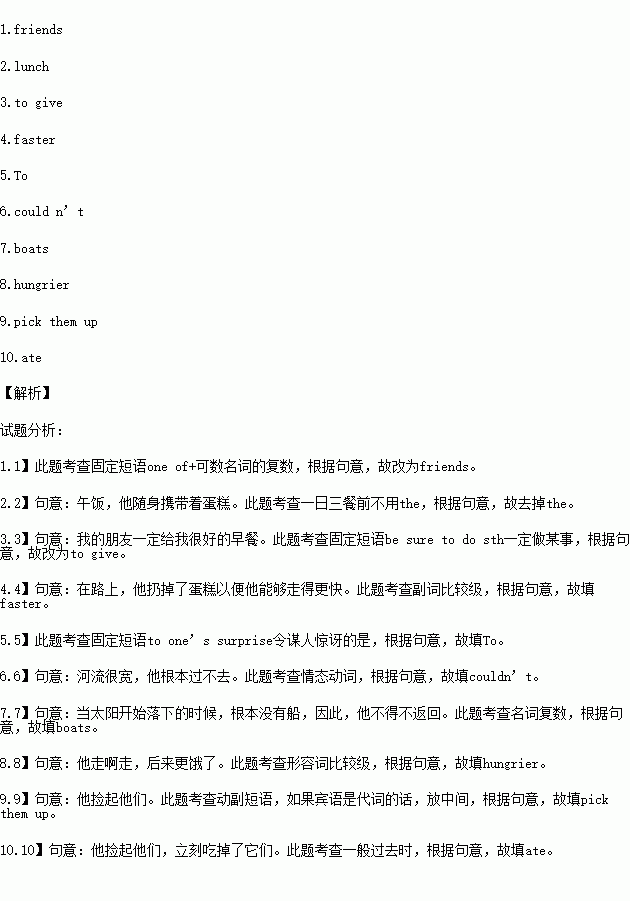题目内容
短文改错
下面短文中的划线部分都是错误的,请改正,并将正确答案写在右边相应的横线上,不得改变原文意思。
A man was setting out to visit one of his friend early in the morning. He brought some cakes with him for the lunch. When he was walking on the road, he thought, “My friend is sure give me a nice breakfast.” He threw away his cakes on the road so that he could walk fast. He went on and at last he came to a river. At his surprise,the river became very wide and he could cross it. He had to wait for a boat. When the sun was beginning to set, there were not any boat, so he had to return. He walked and walked and he felt more hungry. Suddenly he found the cakes on the road. He picked up them and eat them at once.
练习册系列答案
相关题目

